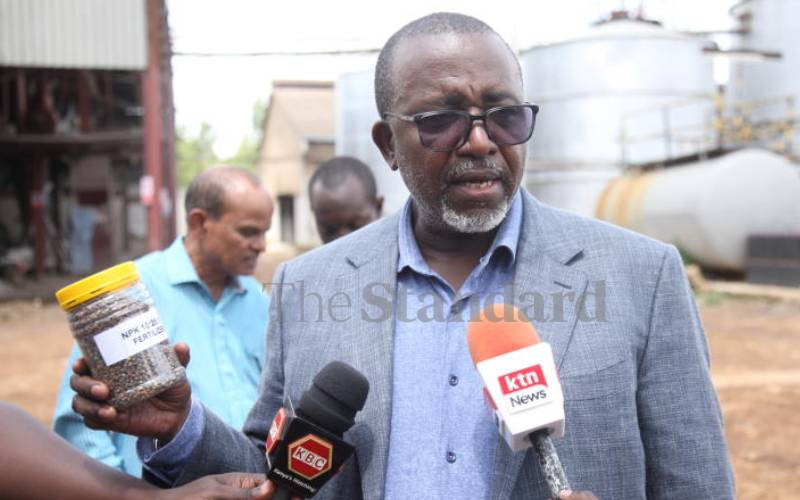By Stephen Makabila
Multiple workers’ strikes in the wake of the recently unveiled 2013/14 budget that fell short of expectations by leading trade unions, has put the Jubilee government on the spot.
The gravity of the prevailing situation was probably demonstrated in President Uhuru’s Monday directive to the Cabinet Secretary for the National Treasury Henry Rotich, Labour Secretary Kazungu Kambi and Education Secretary Jacob Kaimenyi to resolve the matter within three days.
And Uhuru on Thursday further warned that the clamour for higher pay by teachers, nurses, MPs and other civil servants would adversely affect the country’s development plans. The warning came as MPs plotted a constitutional amendment to remove themselves from the ambit of the Salaries and Remuneration Commission and have the freedom to set their own salaries, while teachers, nurses and local authority workers in some parts of the country downed tools to push for better pay. The Kenya National Union of Teachers and its rival Kuppet, resorted to industrial action after the Government ignored pleas for budgetary allocations to pay teachers increased salaries and allowances in the 2013/2014 budget.
The situation has been worsened by the Teachers Service Commission (TSC)’s move to refer the teachers pay demand to the Salaries and Remuneration Commission.
Earlier in the week, Health Cabinet Secretary James Macharia urged the Kenya Union of Domestic, Hotels, Educational Institutions and Hospital Workers leadership to call off a strike that had paralysed services at Kenyatta National Hospital.
“The Government will ensure full implementation of the Comprehensive Bargaining Agreement (CBA) of 2009 to 2013 from July 2013,” Macharia had assured. The Universities Academic Staff Union (Uasu), is also demanding Sh3.9 billion for its second phase of its current CBA, which expires on June 30. Uasu national chairman Sammy Kubasu noted former Finance minister Robinson Githae had pledged in writing to have the increment honoured in the 2013/2014 budgetary allocations.
“We are also working on a new CBA for the year 2013-2015 whose negotiations with the Inter-Public University Councils Consultative Forum should start without further delay,” added Prof Kubasu.
Piling pressure
Knut, Uasu, the University Non Teaching Staff Union, and the Union of Kenya Civil Servants came together to form Confederation of Public Servants Trade Union (Pusetu), which has also been putting pressure on government especially over the welfare of public servants. President Uhuru, while opening the joint session of the National Assembly and the Senate, had made it plain the country’s wage bill was unsustainable. Uhuru had further noted in the current financial year, the total estimated wage bill is Sh458 billion which is slightly over 12 per cent of the country’s gross domestic product, and well above the international accepted standard of 7 per cent, accounting for almost half of the revenue collected by Government.
“This is unsustainable and poses a serious threat to the funding of important development projects,” he said. Even before that, the Salaries and Remuneration Commission (SRC) chair Sarah Serem had raised the red flag on the unsustainability, noting the Sh457.5 billion public sector wage bill in the current financial year was 30.2 per cent of the total national budget of Sh1.51 trillion. Dr Charles Otieno, the Executive Director of the Institute of Polity and Policy, says the biggest challenge facing the new administration is to ensure it borrows to invest and boost economic growth, and not to spend on salaries as it was currently the case.
Otieno says there lacks a reform component and that salary cuts in the public service can only come with restructuring of the same bloated service and creation of other incentives where salaries are slashed.
 The Standard Group Plc is a
multi-media organization with investments in media platforms spanning newspaper
print operations, television, radio broadcasting, digital and online services. The
Standard Group is recognized as a leading multi-media house in Kenya with a key
influence in matters of national and international interest.
The Standard Group Plc is a
multi-media organization with investments in media platforms spanning newspaper
print operations, television, radio broadcasting, digital and online services. The
Standard Group is recognized as a leading multi-media house in Kenya with a key
influence in matters of national and international interest.
 The Standard Group Plc is a
multi-media organization with investments in media platforms spanning newspaper
print operations, television, radio broadcasting, digital and online services. The
Standard Group is recognized as a leading multi-media house in Kenya with a key
influence in matters of national and international interest.
The Standard Group Plc is a
multi-media organization with investments in media platforms spanning newspaper
print operations, television, radio broadcasting, digital and online services. The
Standard Group is recognized as a leading multi-media house in Kenya with a key
influence in matters of national and international interest.







